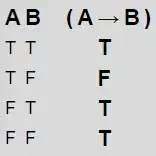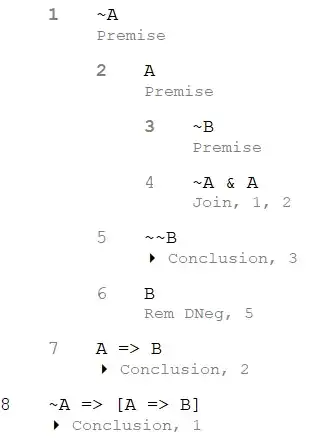My question is, is my proof correct in concluding "If the premises are false, then the conclusion is true"?
Please see if my proof is correct
Is my proof of [If the premises are false, the conclusion is true] correct?
- If the premises are false, the conclusion is false.
Statement 1 is false
because
I am cup. cup is an animal. i am an animal
The premise (I am cup, cup is an animal) is false, but the conclusion (I am an animal) is true.
If there is even one counterexample, the proposition is false.
Therefore, proposition 1 is false
Negation of proposition 1 is true.
The negation of (p->q) is (p and not q)
The negation of proposition 1 is
- The premise is false and the conclusion is true.
Proposition 2 is true
If (p and q) are true then (p->q) is true
thus
- If the premises are false, the conclusion is true.
Statement 3 is true
for example
I am a cup. cup is god. I am a God
Since the premise (I am a cup) is false, the conclusion (I am God) is true.


Pis false, it is the conditionalP→C—not the conclusionC—that must be true! This common confusion arises from informally referring to bothP→CandCas the "implication" in the argument. – ryang Mar 07 '24 at 14:18